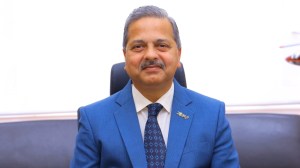Stay updated with the latest - Click here to follow us on Instagram
Coming: Law to save the Ganga
That committee had held a few meetings, but before it could finalise a draft, a new government came to power.
It may soon be illegal to pollute the river Ganga or obstruct its natural flow. The government is considering enacting a law to ensure that its efforts to clean the river and maintain an uninterrupted flow are not hampered.
Uma Bharti, the Minister of Water Resources, River Development and Ganga Rejuvenation, recently said that, if necessary, a law would be framed. However, that would be the “last recourse”, she said.
But work on drafting the legislation is already going on. In fact, it had started during the time of the previous government itself. The UPA government had constituted an inter-ministerial committee in February this year to frame a draft legislation “for strengthening efforts to make the river pollution free and to ensure its continuous flow”.
That committee had held a few meetings, but before it could finalise a draft, a new government came to power. The Narendra Modi government, which has made Ganga cleaning one of its top priorities, is set to constitute another panel to take forward the unfinished job of drafting the legislation, according to an official source.
Among other things, the law, when enacted, is likely to make it binding on state governments to ensure that adequate flow is maintained along the entire length of the river. It is also likely to empower all relevant agencies to ensure that the Ganga and its tributaries flow in an unpolluted state and have minimum obstructions that restrict groundwater recharge.
The law is also expected to look at creation of new institutions that will work for the development, conservation and regeneration of the river and the basin.
The consortium of seven Indian Institutes of Technology (IITs), which is finalising its report on Ganga River Basin Management Plan, is also said to be in favour of bringing in a law. It is going to recommend this in its report, which is likely to be submitted by December, it is learnt.
In a summary of its draft report, submitted a while back, the IIT consortium said that the government would need to create a “Commission that needs to be established by an Act of Parliament to enable an enduring mechanism for sustainable growth in the National River Ganga Basin”. Its final report is likely to contain a draft legislation as well, it is learnt.
Former Chief Vigilance Commissioner, N Vittal, who has been included in the recently-reconstituted National Ganga River Basin Authority (NGRBA) as one of the five independent members, is also said to be working on a separate draft legislation.
Yet another draft has been prepared by the Ganga Mahasabha — which describes itself as “a pan-India organisation dedicated to nature and culture” — with help from several legal experts, including a few former judges.
The government panel to draft the legislation, when it is formed, is expected to draw upon all the individual drafts prepared by others.







